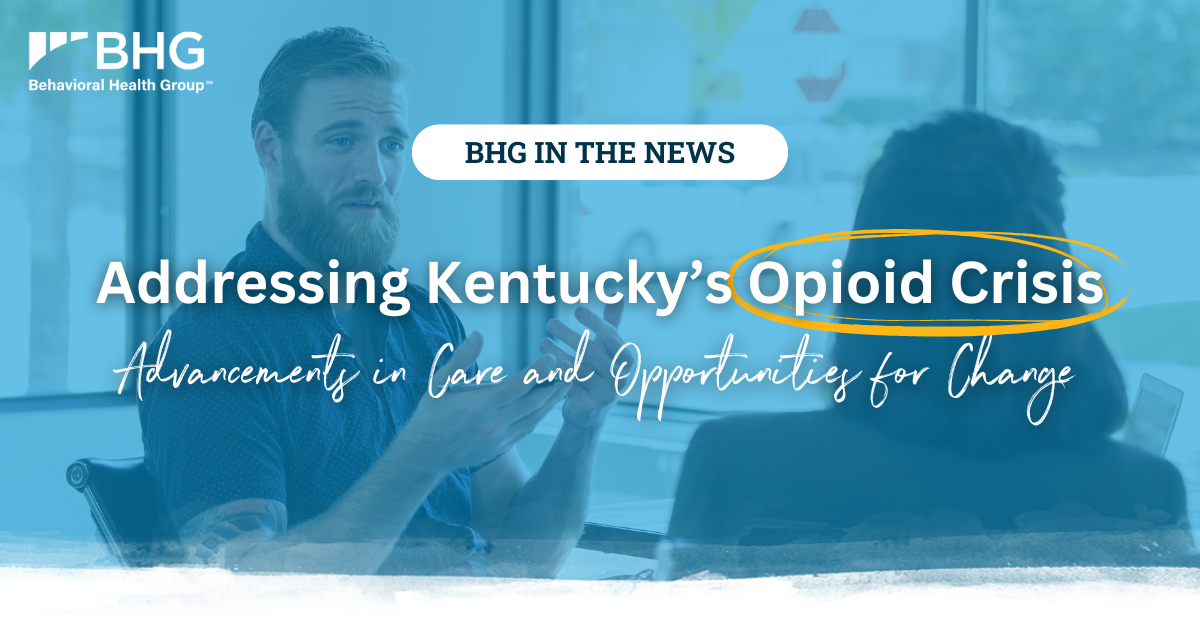
Read the full article by BHG Regional Medical Director for Kentucky, Irwin R. Cohen, MD, in the Courier Journal here.
Recent Advances in Treatment and Support Programs
Kentucky has made promising strides in its efforts to combat the opioid epidemic, with overdose deaths dropping 20% between June 2023 to June 2024. This decline reflects the positive impact of updated federal policies and expanded access to treatment.
New and recent changes have improved access to care by allowing opioid treatment programs (OTPs) to offer flexible options like take-home doses of methadone and mobile treatment units. These measures have made it easier for patients to stay engaged in their recovery. Since 2019, Behavioral Health Group (BHG) treatment centers in Kentucky have seen notable growth in the number patients managing their care with fewer in-person visits.
Additionally, Kentucky’s Medicaid Targeted Case Management program supports recovery by addressing non-clinical needs, such as transportation, food insecurity and care coordination. Expanding these services could further improve treatment access and outcomes across the state.

Barriers Remain Despite Recent Gains
Despite these advancements, barriers still remain. Many areas are still lacking sufficient treatment options, and stigma against people with opioid use disorder (OUD) continues to hinder progress. Policymakers can help by supporting rural providers, expanding mobile services and offering loan forgiveness to attract healthcare providers to underserved areas.
Kentucky stands at a critical point where it can build on its progress and strengthen its recovery network. With continued investment in innovation solutions and greater collaboration, the state can ensure that more residents receive the care and support they need to overcome opioid addiction.
